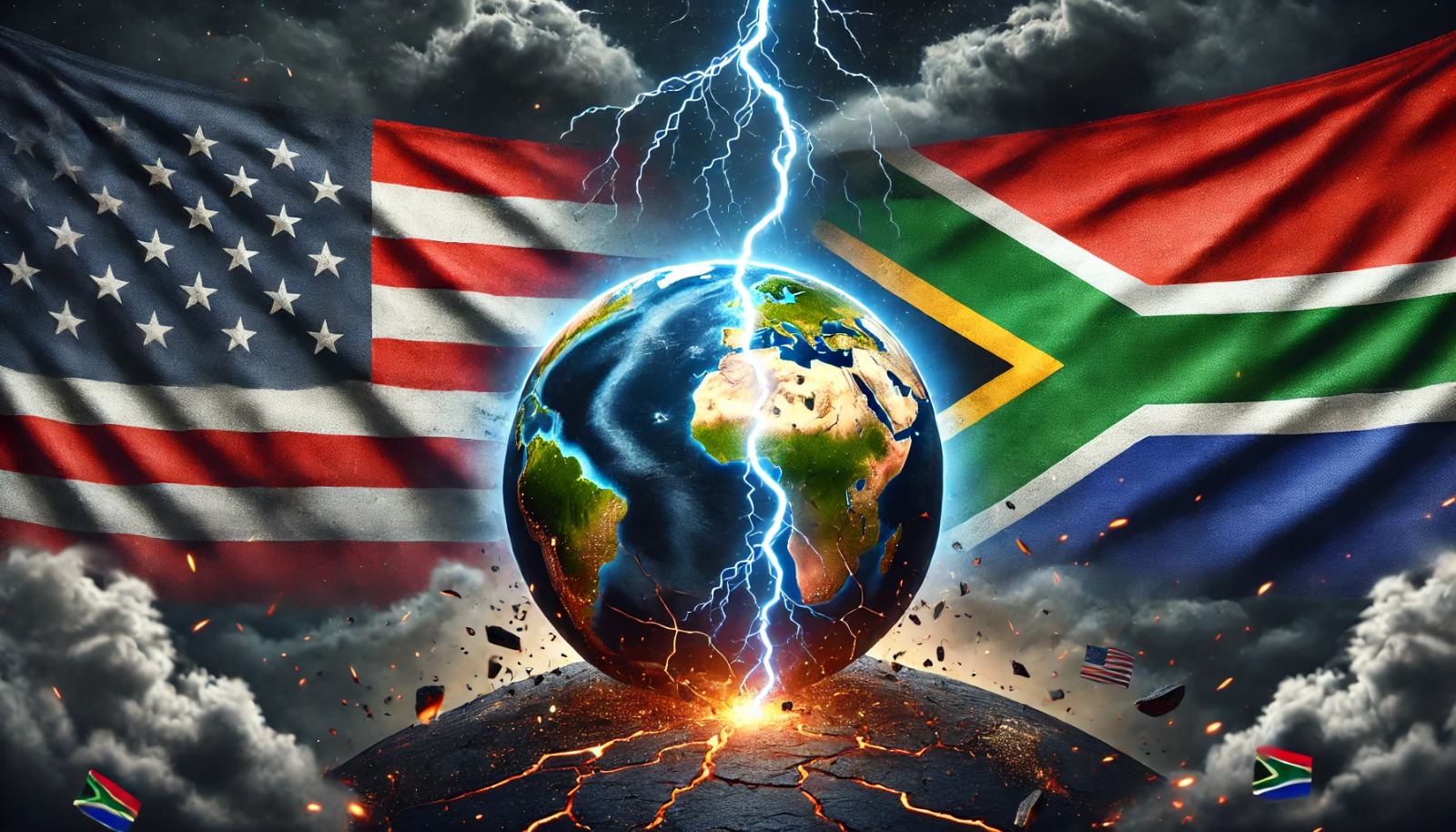
Trump Threatens to Cut Off Funding to South Africa over Land Expropriation Policies
In a move that has reignited debate over South Africa’s land reform agenda, United States President Donald Trump recently threatened to halt future American funding to the country, alleging human rights violations connected to land expropriation without compensation. Trump’s remarks, posted on his Truth Social platform and reiterated in media interviews, have sparked concern among observers of the long-standing diplomatic and economic ties between the two nations.
The issue has gained additional traction as several Republican lawmakers also question South Africa’s broader foreign policy positions, particularly regarding its relationships with Russia and Israel. Although South African officials have dismissed Trump’s claims as “inaccurate” and “politically motivated,” the threat has nonetheless thrust the nation’s expropriation debate back into the global spotlight.
Background and Context
South Africa’s Land Expropriation Debate
South Africa’s land question is rooted in historical dispossession under colonial and apartheid regimes. Statistics from the Department of Rural Development and Land Reformestimate that white South Africans, who account for about 8% of the population, still own a disproportionately large share of the country’s farmland. In response to this longstanding imbalance, the South African government has explored various legislative measures, including an Expropriation Bill, to speed up land restitution and redistribution.
Critics of the government’s approach—most prominently some opposition parties and certain international commentators—claim that expropriation without compensation threatens property rights and could damage investor confidence. Proponents, however, argue that it is essential for rectifying historical injustices and fostering inclusive economic growth.
Trump’s History with South Africa
Donald Trump’s recent statements echo a 2018 tweet in which he directed then-Secretary of State Mike Pompeo to “closely study the South Africa land and farm seizures.” The tweet emerged after a segment on Fox News made allegations of widespread violence against white farmers. Multiple fact-checking organisations, including Africa Check and BBC Reality Check, found that the claims were exaggerated and not supported by verifiable data.
Though the 2018 episode sparked significant uproar, it did not lead to an official US policy shift against South Africa at the time. Experts had earlier noted that Trump’s reiterated comments could be part of a broader political strategy ahead of the 2024 US presidential election, as Republican lawmakers scrutinised America’s foreign aid commitments.
New Evidence and Developments
The President’s remarks appeared in a Truth Social post on [date redacted for neutrality], in which he accused South African authorities of “confiscating land” and subjecting “certain classes of people” to ill-treatment. He labelled the situation a “massive human rights violation” and warned that the United States “will not stand for it.”
Shortly after posting, Trump repeated these allegations in an on-camera interview, stating:
“They’re taking away land. They’re confiscating land, and actually, they’re doing things that are perhaps far worse than that. Until we find out what South Africa is doing, I will cut all future funding.”
South African Government Response
In Pretoria, an official from the Department of International Relations and Cooperation (DIRCO), speaking on condition of anonymity (due to the department’s internal communication protocols), described Trump’s comments as “inflammatory and unfounded.” The official insisted that land reform legislation in South Africa is conducted within the confines of constitutional guidelines and is subject to judicial scrutiny.
Meanwhile, South African Ambassador to the United States, Ibrahim Rasool, has not publicly commented in detail on the matter, though he previously acknowledged that tensions have heightened between the two nations due to differing stances on various foreign policy issues.
According to ForeignAssistance.gov, the United States has provided between US$450 million and US$600 millionannually in various forms of development aid to South Africa in recent years. A substantial portion of this funding goes toward PEPFAR (the President’s Emergency Plan for AIDS Relief) to combat HIV/AIDS, tuberculosis, and other public health challenges. These programmes are widely credited with saving lives and strengthening healthcare systems in under-resourced communities across South Africa.
Although Trump’s statement suggests a looming aid freeze, no official directive has been issued by the White House or the US State Department. Experts caution that disrupting health and social programmes over political disagreements could harm vulnerable South Africans more than it would influence the country’s policy reforms.
Multiple Perspectives on the Issue
Some conservative commentators in both the United States and South Africa argue that Trump’s demands will force transparency around the expropriation process. They contend that any policy enabling the seizure of property without compensation raises legitimate human rights and investment concerns.
Numerous civil society organisations in both nations have condemned Trump’s stance. They highlight the complexity of land redistribution as vital for correcting historical injustices. Fact-checking bodies such as Africa Check assert that claims of “land seizures” specifically targeting racial minorities have been exaggerated. These critics add that shutting off US funding may undermine existing humanitarian programmes without necessarily influencing legislation in Pretoria.
The US State Department has not formally endorsed Trump’s statements. Several Republican members of Congress, however, are pushing for more scrutiny of South Africa’s foreign and domestic policies. Meanwhile, some analysts note that while Trump can shape public discourse, any formal action to suspend aid would require legislative processes—particularly if the administration in power does not support such a move.
Potential Implications
1. Economic and Currency Fluctuations
Threats of funding cuts can heighten investor anxiety and cause fluctuations in the rand. Past tensions between Washington and Pretoria have coincided with short-term depreciation of the currency, complicating South Africa’s efforts to stabilise its economy.
2. Impact on Health and Social Programmes
A freeze on US financial assistance could jeopardise critical initiatives that rely heavily on American funding, notably PEPFAR. Any disruptions may disproportionately affect low-income communities needing HIV/AIDS treatment and other healthcare interventions.
3. Geopolitical Repositioning
If the US–South Africa relationship deteriorates further, Pretoria may deepen partnerships with other nations, such as fellow BRICS members (Brazil, Russia, India, and China), altering the balance of influence and commerce in the region.
Conclusion: A Call for Understanding and Compassion
Land is more than mere property; it is a symbol of identity, heritage, and potential livelihood. South Africa’s pursuit of land reform aims to correct centuries of dispossession, yet the issue is fraught with complexity and global scrutiny. Donald Trump’s threat to halt US funding—though not backed by any immediate official policy—has poured fuel on an already heated debate, eliciting a wave of reactions both at home and abroad.
Ultimately, vulnerable communities on the ground must not be overlooked. South Africa’s people need both international support and the freedom to navigate their own path towards equitable land distribution. Compassionate engagement—rather than stark ultimatums—will better serve those whose daily realities hinge upon healthcare access, social development, and a stable economy.
As the conversation unfolds, a balanced approach grounded in factual information and genuine collaboration could help bridge the divide. By engaging thoughtfully and respectfully, both South Africa and the United States can work towards solutions that address historical injustices while sustaining vital programmes and preserving diplomatic relationships. Indeed, empathy and clear-eyed dialogue stand as our strongest tools to ensure no community is left behind in the quest for justice and prosperity.
Aric Jabari is the Editorial Director of the Sixteenth Council.



